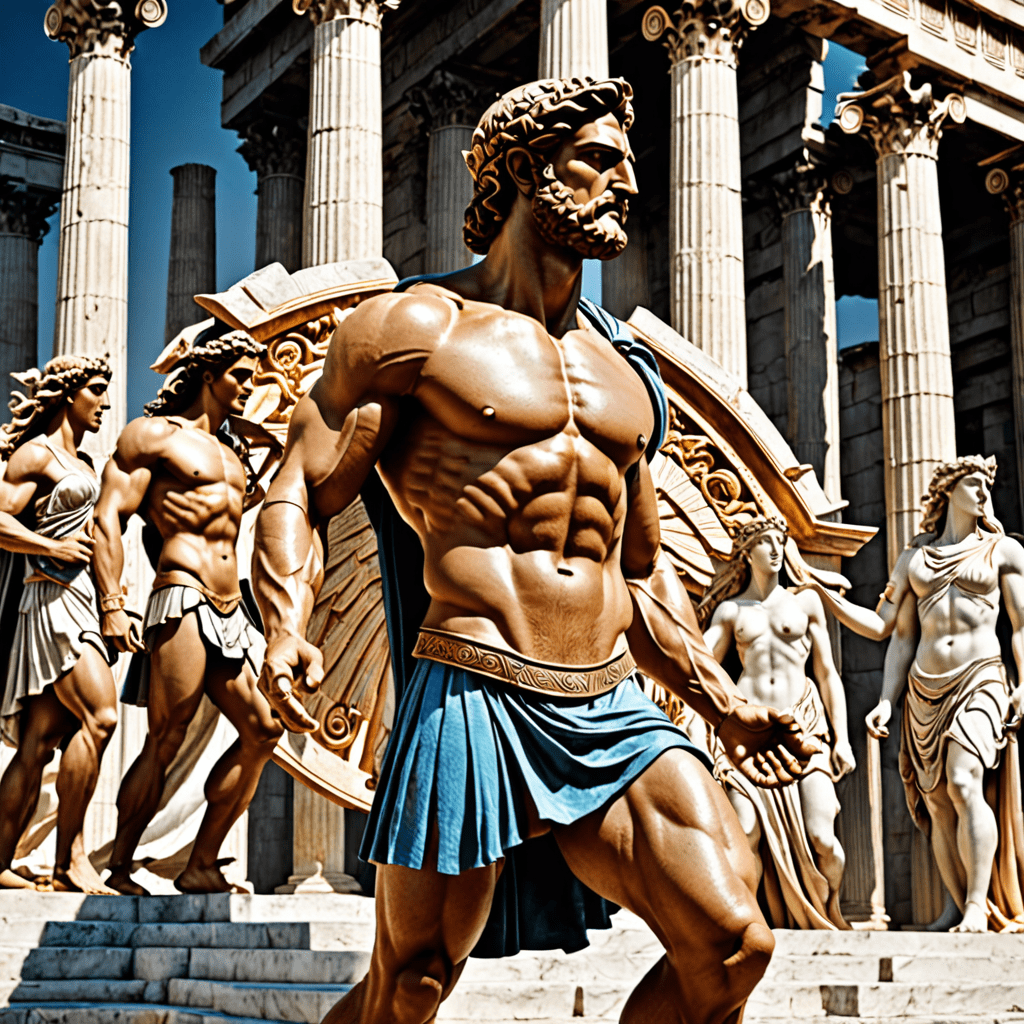The Influence of Greek Mythology on Modern Culture
Greek mythology has had a profound impact on modern culture, shaping art, literature, language, and even everyday expressions. Let’s explore how the ancient tales of gods, heroes, and monsters continue to resonate in the contemporary world.
1. Influence on Language and Literature
Many phrases in the English language find their origins in Greek mythology. Expressions like “Pandora’s box,” “Achilles’ heel,” and “Herculean task” allude to characters from these ancient stories. Moreover, numerous works of literature, from Shakespeare to modern-day novels, draw inspiration from Greek myths, perpetuating their enduring relevance.
2. Impact on Art and Architecture
From Renaissance paintings to contemporary sculptures, Greek mythology has long been a popular theme in the art world. Iconic figures such as Medusa, Zeus, and Persephone continue to serve as muses for artists worldwide. Architecturally, Greek mythology is evident in the design of buildings and monuments, with structures like the Parthenon drawing inspiration from ancient Greek aesthetics.
3. Influence on Pop Culture and Entertainment
The entertainment industry frequently references Greek mythology in films, television shows, and video games. Blockbuster movies like “Clash of the Titans” and TV series like “Olympus” bring these ancient stories to a modern audience. Additionally, characters based on Greek gods often feature prominently in popular culture, captivating audiences with their timeless allure.
4. Educational and Psychological Insights
Studying Greek mythology provides invaluable educational benefits, offering insights into ancient beliefs, societal structures, and moral values. Moreover, psychological analyses of mythological figures, such as the archetypes developed by Carl Jung, continue to shape contemporary understanding of the human psyche. The enduring appeal of these myths lies in their ability to transcend time and resonate with universal experiences.
In conclusion, the influence of Greek mythology on modern culture is undeniable, permeating various facets of society and enriching our collective imagination. By studying and celebrating these timeless tales, we not only honor the ancient Greeks but also gain valuable insights into our own beliefs, values, and creative expressions.
FAQs about the Influence of Greek Mythology on Modern Culture
What is Greek Mythology?
Greek mythology encompasses the collection of myths and legends originating from ancient Greece. These stories often involve gods, goddesses, heroes, and mythical creatures and were used to explain natural phenomena, teach moral lessons, and entertain.
How has Greek Mythology Influenced Modern Culture?
Greek mythology has deeply influenced modern culture in various ways, from literature and art to language and popular culture. Many works of art, literature, movies, and even business terminologies draw inspiration from Greek myths, impacting our understanding of storytelling and symbolism.
Can you provide examples of Greek Mythology in Modern Culture?
Sure! Some examples include the use of mythological characters like Hercules or Medusa in movies and TV shows, references to the Trojan War in literature, the naming of planets after Greek gods, and the inspiration of architectural designs such as the Parthenon in Greece.
Why is Understanding Greek Mythology Important?
Understanding Greek mythology is crucial as it helps us appreciate the origins of many cultural references, enriches our literary and artistic experiences, and provides insights into the beliefs and values of ancient civilizations that have shaped our world today.



